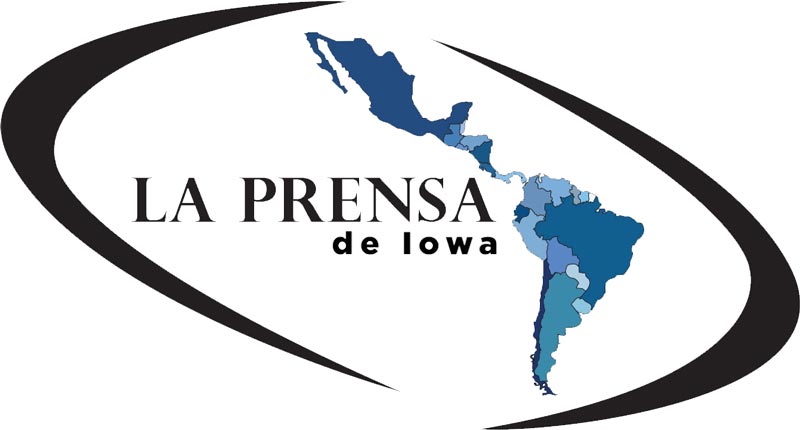Universidad de Stanford piensa eliminar ciertas palabras
/Redacción
LA PRENSA Iowa
Estadounidense, abuelo, valiente y maestro: Palabras que la Universidad de Stanford incluye en su índice de 'lenguaje dañino' porque son 'capaces, sexistas o racistas'
La Universidad de Stanford publicó recientemente una lista de palabras para que sean eliminadas del uso de sus sistemas informáticos y sitios Web, ya que, según ellos, las palabras contienen connotación de lenguaje dañino que discriminan en contra de las personas con discapacidades, edad o son palabras racistas, incluida la palabra ‘American’ que en su lugar será reemplazada por el uso de ‘ciudadano estadounidense.
Otras de las palabras en inglés que la universidad quiere eliminar son: grandfather, brave y master (abuelo, valiente y maestro por su traducción al español.
La Universidad reveló el plan en mayo y quiere eliminar las palabras de sus sistemas de TI y sitios web, con abuelo, valiente y maestro también en la lista.
La Iniciativa para la eliminación del lenguaje nocivo también tendrá como objetivo educar a las personas sobre el impacto que tienen las palabras "racistas, violentas y tendenciosas."
El prestigiado centro universitario ha enumerado 10 secciones donde el lenguaje 'dañino' puede aparecer bajo los encabezados: capacitista, discriminación por edad, colonialismo, lenguaje culturalmente apropiado, basado en el género, lenguaje impreciso, racismo institucionalizado, consideraciones personales primero, violentas y adicionales.
También ha pedido a la gente que deje de usar el término 'estadounidense' ya que en las Americas hay 42 países, e implica 'que Estados Unidos es el país más importante de las Américas', dice la lista.
En la categoría culturalmente apropiada, dice que se deben usar nombres en lugar de 'jefe' o 'Pocahontas'.
En otro lugar, también pide que el término 'abortar' se cambie por 'terminar' o 'cancelar', en lugar de vincularlo con el aborto.
El sitio también sugiere reemplazar 'Karen' con 'mujer blanca exigente o con derecho', mientras que 'niña prostituta' podría cambiarse por 'niña que ha sido traficada'.
En su sección sobre lenguaje capacitista, la institución dice que será 'adicto' para una 'persona con un trastorno por abuso de sustancias', y 'suicidado' para 'muerto por suicidio'.
También dice que cambiará el término 'revisión ciega' por 'revisión anónima', mientras que 'sordo' debe cambiarse por 'no informado' y 'estacionamiento para discapacitados' por 'estacionamiento accesible'.
También establece en su sección basada en el género que se deben usar 'pronombres' en lugar de 'pronombres preferidos', ya que este último implica que 'la identidad de género es una elección'.
También advierte contra las palabras que terminan en hombre o mujer, como 'estudiante de primer año' o 'congresista', ya que no es inclusivo.
La sección sobre racismo institucionalizado establece que 'marca negra' y 'oveja negra' no se usan debido a las 'connotaciones negativas del color negro.'
También sugiere que se usa 'estado heredado' en lugar de 'exento' debido a 'las raíces en la 'cláusula de grandfather adoptada por los estados del sur para negar los derechos de voto a los negros.'
También se desaconseja el lenguaje que se considera que tiene connotaciones "violentas", como "apretar el gatillo" y "matar dos pájaros de un tiro."
Otras sugerencias incluyen cambiar 'inmigrante' por 'una persona que ha inmigrado' y 'prisionero' por 'una persona que está/fue encarcelada' para no definir a alguien por una característica singular.
Translation
Stanford University plans to remove certain words
Redaction
LA PRENSA IOWA
American, grandpa, brave and teacher: Words Stanford University includes in its 'harmful language' index because they are 'capable, sexist or racist'
Stanford University recently released a list of words to be removed from the use of its computer systems and Web sites, as they say the words connote harmful language that discriminates against people with disabilities, age, or are racist words, including the word 'American' which will be replaced by the use of 'US citizen' instead.
Other words in English that the university wants to eliminate are: grandfather, brave and master (grandfather, brave and teacher for their translation into Spanish.
The University revealed the plan in May and wants to remove the words from its IT systems and websites, with grandfather, brave and teacher also on the list.
The Harmful Language Elimination Initiative will also aim to educate people about the impact of "racist, violent and biased" words.
The prestigious university center has listed 10 sections where 'harmful' language can appear under the headings: ableist, ageism, colonialism, culturally appropriate language, gender-based, imprecise language, institutionalized racism, personal considerations first, violent and additional. .
He has also asked people to stop using the term "American" since there are 42 countries in the Americas, and it implies "that the United States is the most important country in the Americas," the list says.
In the culturally appropriate category, it says names should be used instead of 'boss' or 'Pocahontas'.
Elsewhere, it also calls for the term 'abort' to be changed to 'terminate' or 'cancel', rather than linking it to abortion.
The site also suggests replacing 'Karen' with 'demanding or entitled white woman', while 'child prostitute' could be changed to 'child who has been trafficked'.
In its section on ableist language, the institution says it will be 'addicted' for a 'person with a substance use disorder', and 'suicidal' for 'died by suicide'.
It also says it will change the term 'blind review' to 'anonymous review', while 'deaf' should be changed to 'uninformed' and 'disabled parking' to 'accessible parking'.
It also states in its gender-based section that 'pronouns' should be used instead of 'preferred pronouns', as the latter implies that 'gender identity is a choice'.
He also cautions against words ending in male or female, such as 'freshman' or 'congressman', as it is not inclusive.
The section on institutionalized racism states that 'black mark' and 'black sheep' are not used because of the 'negative connotations of the color black.'
He also suggests using 'inherited status' instead of 'exempt' because of 'roots in the 'grandfather clause' adopted by southern states to deny voting rights to blacks.'
Language that is considered to have "violent" connotations, such as "pull the trigger" and "kill two birds with one stone," is also discouraged.
Other suggestions include changing 'immigrant' to 'a person who has immigrated' and 'prisoner' to 'a person who is/was incarcerated' so as not to define someone by a singular characteristic.






































